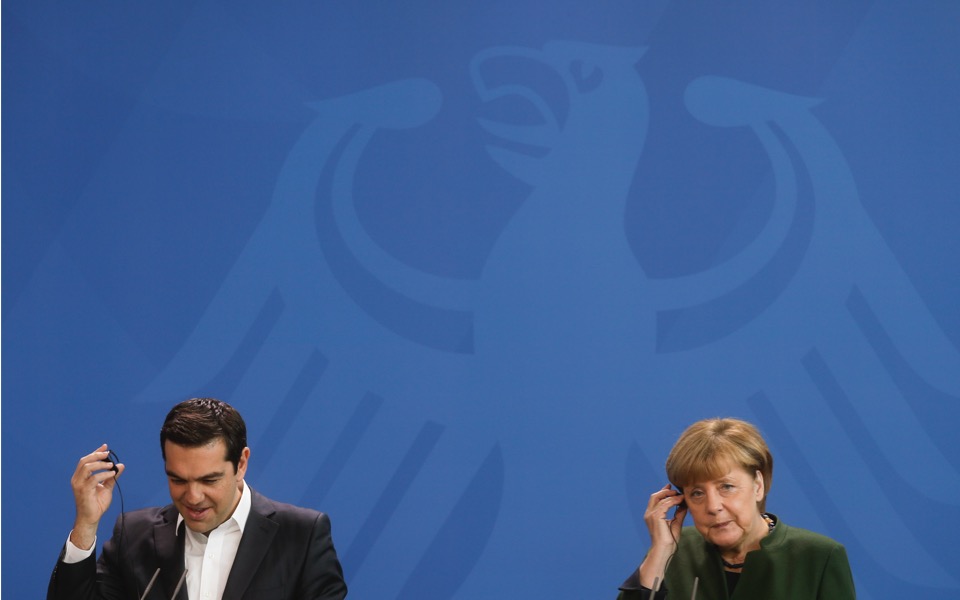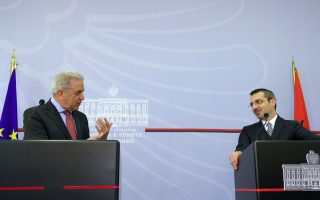Tsipras lauds EU-Turkey deal, which requires immediate action in Greece

Prime Minister Alexis Tsipras said he was walking away satisfied on Friday from the summit between the European Union and Turkey, where all sides agreed on a plan that will see refugees sent back from Greece and resettled directly from its neighbor.
“We have put into action what we have been trying to achieve for the last three months,” he said after yesterday’s agreement. “In other words, agreeing a common approach to the refugee crisis.”
Greece has long favored the resettlement of refugees directly from Turkey as this would likely deter people from using smugglers to cross the Aegean, thereby bringing down the number of arrivals on Greek islands. Tsipras noted, though, that when the plan was first presented last week, many EU leaders were opposed to it or expressed skepticism.
“The common EU-Turkey plan looked like it was going to be abandoned 11 days ago, with most ready to take unilateral actions and Greece in danger of becoming a warehouse of souls,” he said. “But this has been averted.”
Under the pact, Ankara would take back all migrants and refugees, including Syrians, who cross to Greece illegally across the Aegean. In return, the EU would take in up to a total of 72,000 refugees directly from Turkey and reward it with more money, early visa-free travel and faster progress in EU membership talks.
Those arriving in Greece from tomorrow will be subject to being sent back once they have been registered and their individual asylum claim processed. The returns are to begin on April 4, as would resettlement of Syrian refugees in Europe.
Tsipras stressed that the process, which has been questioned by human rights groups, would by fully compliant with international legislation. “We demanded that there be a specific reference to the whole process being done in close cooperation with the UNHCR,” he said.
Greece will need to make major improvements to its asylum service and judicial system so that each case can be examined individually and appeals can be heard before people are returned to Turkey. An extra 4,000 staff, just over half of whom will be provided by the EU, will be stationed on the Greek islands to manage the flow.
European Commission President Jean-Claude Juncker said that the director general of the Structural Reforms Supports Service, Maarten Verwey, would be appointed as the EU’s coordinator.
“He will organize the work and coordinate the dispatching of the 4,000 staff that will be needed from Greece, member-states, the European Asylum Support Office (EASO) and Frontex,” he said. “We need case workers, interpreters, judges, return officers and security officers.”
Juncker said that the operation would cost up to 300 million euros over the next six months, 30 million of which would go to the Greek army for the upkeep of facilities housing refugees.
Tsipras also hailed as a diplomatic success the fact that there was no agreement with Turkey to open any new EU accession chapters at this stage. Cyprus had been vehemently against any such move. In the end, there was an agreement to open only Chapter 33 on budget policy. Cyprus President Nicos Anastasiades said he was “fully satisfied” by this.





